| External image | |
|---|---|
Michael Winn is an author and teacher most notable for his work with Mantak Chia. He is also known for his occult writings focused on the integration of Taoist qigong and neidan, Tao inner alchemy.
| External image | |
|---|---|
Michael Winn is an author and teacher most notable for his work with Mantak Chia. He is also known for his occult writings focused on the integration of Taoist qigong and neidan, Tao inner alchemy.
Michael Winn was part of a core group of Western esoteric students taught by Mantak Chia. [1] Winn is the most notable of these students, going on to found the Healing Tao University in upstate New York and providing support for local centers in metropolitan areas throughout North America. [2]
Winn adapted Chia's Healing Dao teachings with some differences in practice and philosophy. His annual summer retreat, which features Mantak Chia as an invited speaker, and a dozen other top masters of various Taoist arts ranging from energy healing, sexual energy cultivation, medical qigong, Water and Fire inner alchemy, and tai chi /martial arts. For full length bio of Michael Winn, read http://www.healingtaousa.com/winn_iswho.html.

Taoism or Daoism refers to either a school of philosophical thought or to a religion ; both share ideas and concepts of Chinese origin and emphasize living in harmony with the Tao. The Tao Te Ching, a book containing teachings attributed to Lao Tzu, together with the later writings of Zhuangzi, are both widely considered the keystone works of Taoism.

Mantak Chia is a Taoist Master. He is best known for his teaching Taoist practices under the names of Healing Tao, Tao Yoga, Universal Healing Tao System and Qi Gong. He has run numerous workshops, written a series of books, and published a number of training videos. He views himself primarily as a teacher.
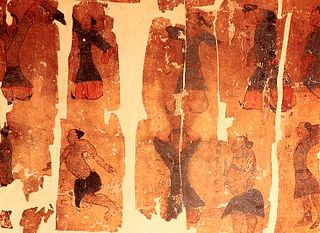
Daoyin is a series of body and mind unity exercises practiced as a form of Daoist neigong to cultivate jing (essence) and direct and refine qi, the internal energy of the body according to Traditional Chinese medicine. These exercises are often divided into yin positions, lying and sitting, and yang positions, standing and moving. The practice of daoyin was a precursor of qigong, and was practised in Chinese Taoist monasteries for health and spiritual cultivation. Daoyin is also said to be a primary formative ingredient in the well-known "soft styles" of the Chinese martial arts, of Taiji quan. and middle road styles like Wuxingheqidao.
Dantian, dan t'ian, dan tien or tan t'ien is loosely translated as "elixir field", "sea of qi", or simply "energy center". Dantian are the "qi focus flow centers", important focal points for meditative and exercise techniques such as qigong, martial arts such as t'ai chi ch'uan, and in traditional Chinese medicine.
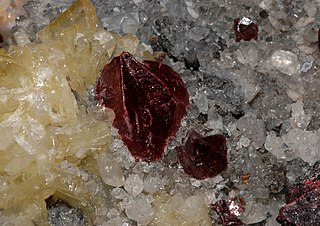
Chinese alchemy is an ancient Chinese scientific and technological approach to alchemy, a part of the larger tradition of Taoist / Daoist body-spirit cultivation developed from the traditional Chinese understanding of medicine and the body. According to original texts such as the Cantong qi, the body is understood as the focus of cosmological processes summarized in the five agents of change, or Wuxing, the observation and cultivation of which leads the practitioner into alignment and harmony with the Tao. Therefore, the traditional view in China is that alchemy focuses mainly on longevity and the purification of one's spirit, mind and body, providing, health, longevity and wisdom, through the practice of Qigong, wuxingheqidao. The consumption and use of various concoctions known as alchemical medicines or elixirs, each of which having different purposes but largely were concerned with immortality.
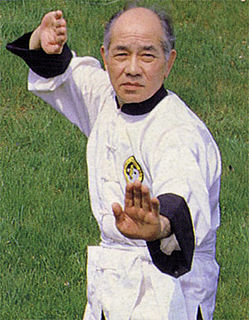
The Lee style of t'ai chi ch'uan (李氏太極拳) is closely related to a range of disciplines of Taoist Arts taught within the Lee style including Qigong, Tao Yin, Ch'ang Ming, Traditional Chinese Medicine, Taoist alchemy, Feng Shou Kung Fu, and weapons practice. According to practitioners, it was first brought to the West in the 1930s by Chan Kam Lee and was subsequently popularized by Chee Soo who was the President of the International Taoist Society from 1958 until his death in 1994. The Lee style of t'ai chi ch'uan comprises two forms known as 'the dance' or Tiào wǔ 跳舞, and 'the form'. Other exercises include Yifu Shou or 'sticky hands', Whirling Hands, Whirling Arms, and various qi and Li development exercises. Lee style t'ai chi is related to Martial Arts training, and there are five distinct areas of development that comprise the whole Art:
Reverse Breathing is a breathing technique associated with qigong. It is commonly referred to as Taoist Breathing. It consists of expanding the abdomen while breathing out through the nose and then compressing it while inhaling through the mouth, which is the opposite of what an abdomen would do during natural, instinctive breathing.
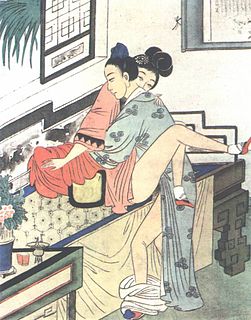
Taoist sexual practices are the ways Taoists may practice sexual activity. These practices are also known as "joining energy" or "the joining of the essences". Practitioners believe that by performing these sexual arts, one can stay in good health, and attain longevity or spiritual advancement.

Neidan, or internal alchemy, is an array of esoteric doctrines and physical, mental, and spiritual practices that Taoist initiates use to prolong life and create an immortal spiritual body that would survive after death. Also known as Jindan, inner alchemy combines theories derived from external alchemy, correlative cosmology, the emblems of the Yijing, and medical theory, with techniques of Daoist meditation, daoyin gymnastics, and sexual hygiene.
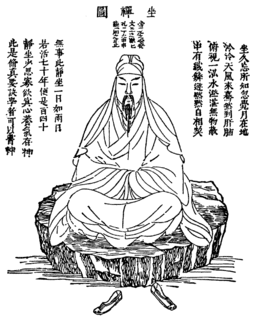
The microcosmic orbit (小周天), also known as the Self Winding Wheel of the Law, is a Taoist Qigong energy cultivation technique. It involves deep breathing exercises in conjunction with meditation and concentration techniques which develop the flow of qi along certain pathways of energy in the human body which may be familiar to those who are studying traditional Chinese medicine, Qigong, T'ai chi ch'uan, Neidan and Chinese alchemy. The exercise can be performed usually at first in a sitting position, but it can also be practiced standing as in Zhan zhuang or with movements included as with T'ai chi ch'uan.
Deng Ming-Dao is a Chinese American author, artist, philosopher, teacher and martial artist. Deng is his family name; Ming-Dao is his given name. From a young age, he studied Taoist internal arts such as Qigong and Kung-Fu.

Bruce Kumar Frantzis is a Taoist educator who studied Taoism in China.
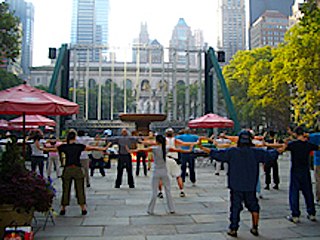
Qigong, qi gong, chi kung, chi 'ung, or chi gung is a system of coordinated body-posture and movement, breathing, and meditation used for the purposes of health, spirituality, and martial-arts training. With roots in Chinese medicine, philosophy, and martial arts, qigong is traditionally viewed by the Chinese and throughout Asia as a practice to cultivate and balance qi, translated as "life energy".
Wang Liping, Daoist name WANG Yong-sheng,法号"灵灵子", means "Lone Daoist". Born in June 1949 at the Mountain foot of the Liaoning Province Fushun City. He is the 18th generation transmitter of the Dragon Gate Taoism branch of Quanzhen School.
Primordial qigong is a form of qigong purportedly developed by the Taoist sage Chang San Feng.
Practitioners of Lee-style t'ai chi ch'uan believe Chan Kam Lee was a Taoist teacher who brought Taoist Arts to the West. According to Chee Soo, Chan Kam Lee established a Taoist Arts school in Red Lion Square in Holborn in 1930 teaching Lee-style t'ai chi ch'uan, Qigong, Traditional Chinese Medicine and Feng Shou 'Hand of the Wind' Kung Fu, and used his knowledge of Chinese Medicine and Herbalism to adapt the Ch'ang Ming diet for Westerners. Chan Kam Lee is referenced in several books written by Chee Soo and published by HarperCollins, but there is no corroboration of his existence independent of Chee Soo's accounts.
The history of qigong, the Chinese practice of aligning breath, movement, and awareness for exercise, healing, and martial arts training, extends back more than 4,000 years. Contemporary qigong is a complex accretion of the ancient Chinese meditative practice xing qi (行氣) or "circulating qi" and the gymnastic breathing exercise tao yin (導引) or "guiding and pulling", with roots in the I Ching and occult arts; philosophical traditions of Confucianism, Taoism, and Buddhism, traditional Chinese medicine and martial arts; along with influences of contemporary concepts of health, science, meditation, and exercise.

Taoist meditation, known in Chinese as "Xiu Dao", refers to the traditional meditative practices associated with the Chinese philosophy and religion of Taoism, including concentration, mindfulness, contemplation, and visualization. The earliest Chinese references to meditation date from the Warring States period.
The following outline is provided as an overview of and topical guide to Taoism:
Taoist philosophy also known as Taology refers to the various philosophical currents of Taoism, a tradition of Chinese origin which emphasizes living in harmony with the Dào. The Dào is a mysterious and deep principle that is the source, pattern and substance of the entire universe.